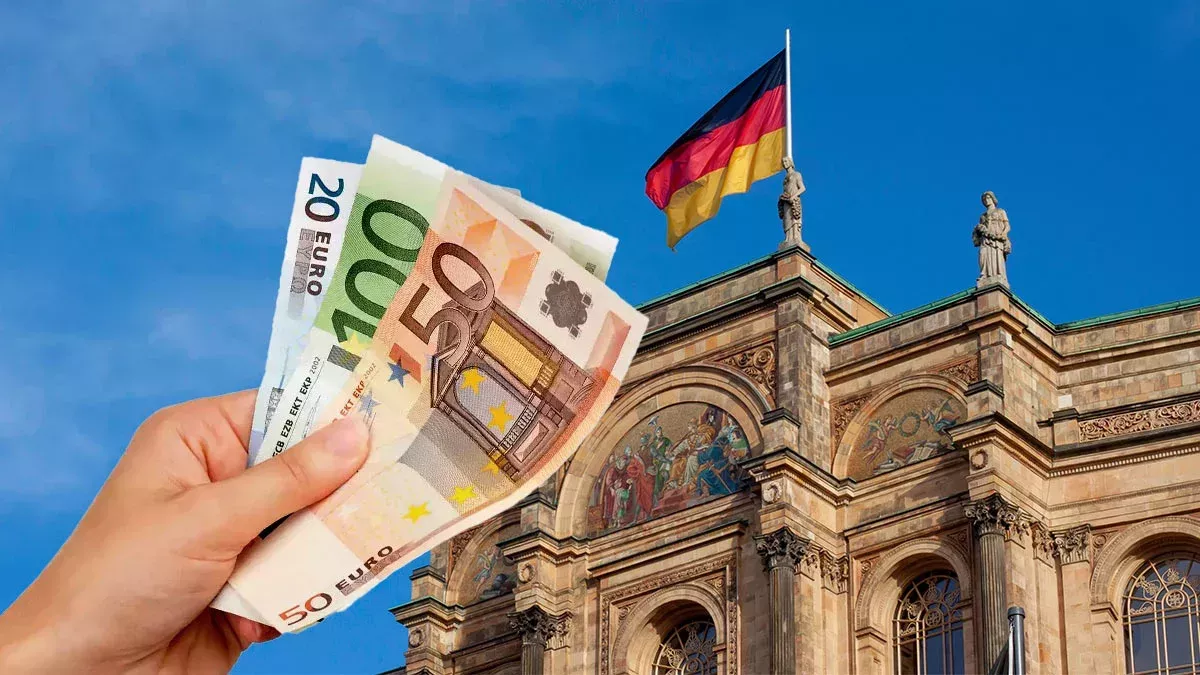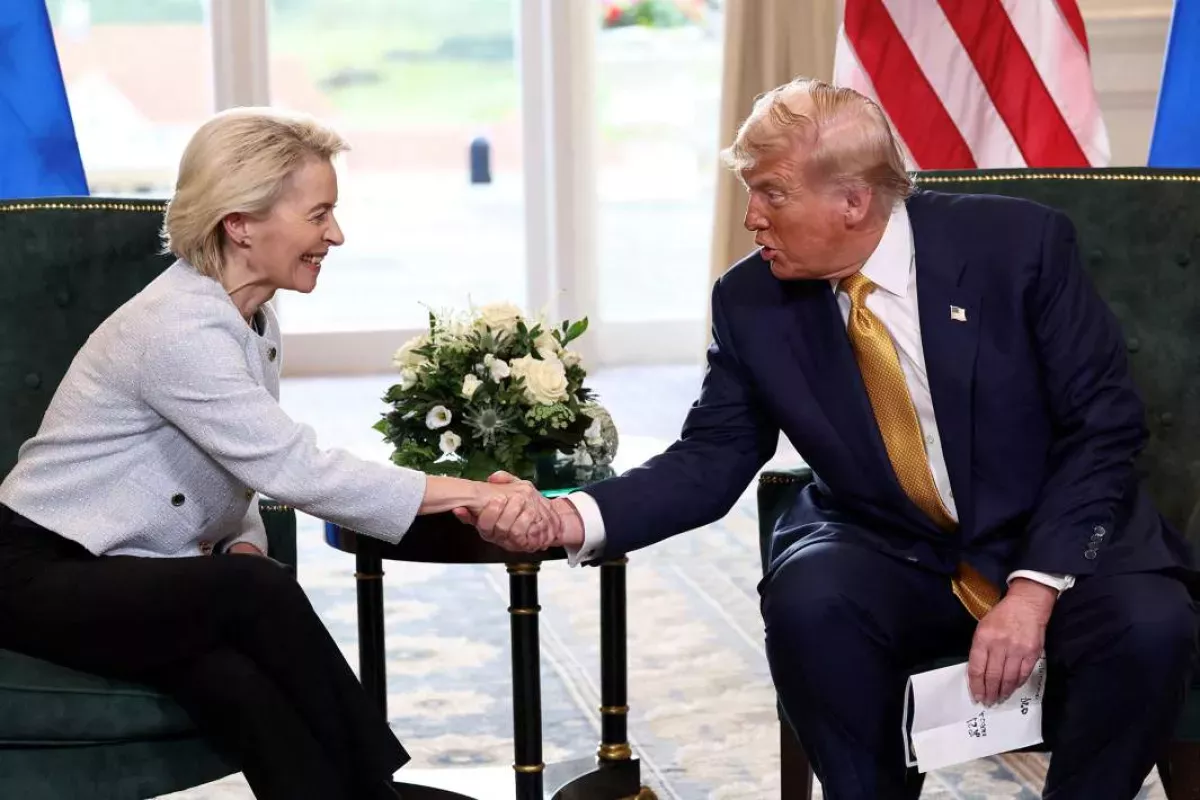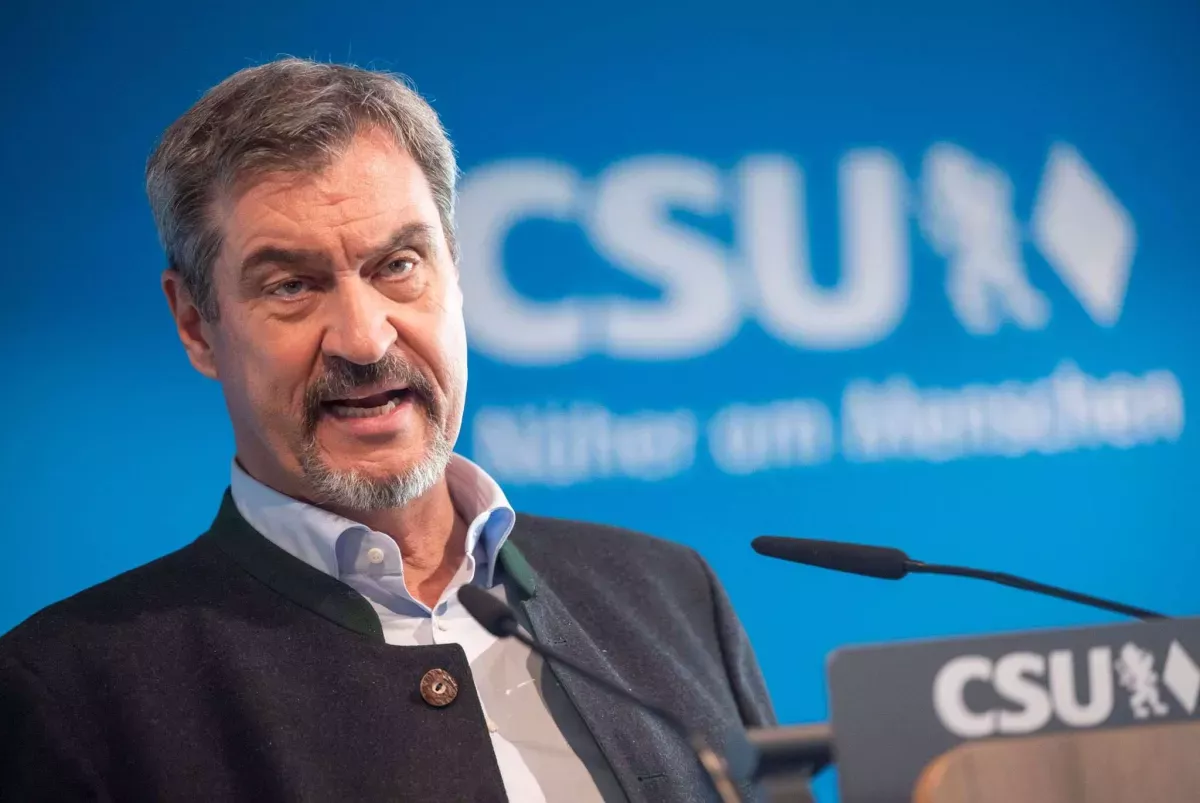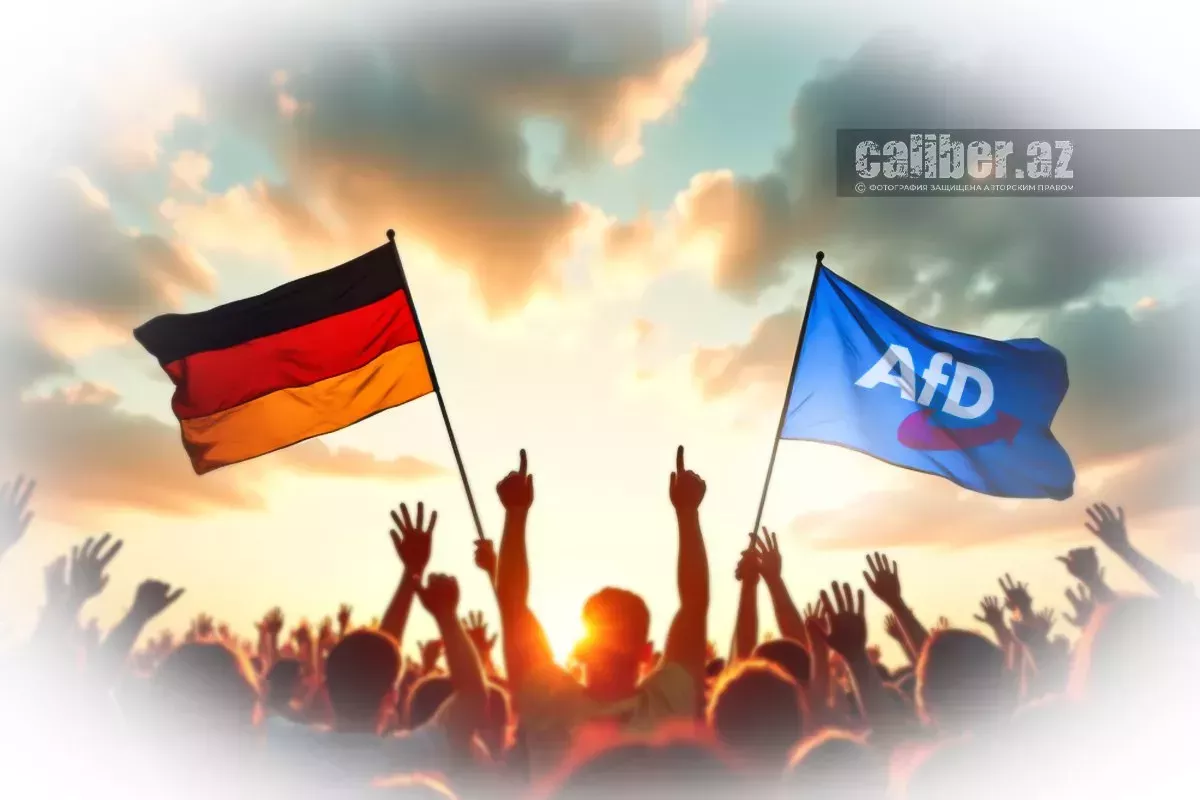No guns, no butter: Germany’s economic and military challenges In a changing Europe
The three main intelligence agencies of Germany recently declared Russia as the primary threat, while Chancellor Merz insistently emphasises the need to strengthen military power “for the sake of peace.” These long-neglected topics in a once-prosperous Germany have resurfaced at a time when the country’s political system faces the risk of collapse, the economy is in decline, and public safety is shaken to its core. Military mobilisation will not solve these problems; it will ultimately bury the Germany we have known since 1945. Signs of crisis have long been observed in other EU countries as well, but Germany had, until now, held steady and stabilised the rest of the EU. That is coming to an end.

Collapse of the auto industry
Money in Germany, as in the rest of the EU, is noticeably losing its value. Rising inflation in the European Union has even forced German authorities to consider abandoning small coins. Policy analyst Andrei Gordienko calculated that over the past thirty years, a typical breakfast sandwich bun has increased in price fortyfold. When he lived in the GDR, it cost 5 East German pfennigs, equivalent to 1.5 West German pfennigs. After reunification, it already cost 20 West German pfennigs, equal to 10 euro cents. Following all the monetary reforms, the introduction of the euro, and inflation, it now costs 19 cents even in its cheapest version.
The cost of real estate rose along with these changes, but money did not. On the contrary, through these processes, people’s savings were elegantly siphoned off—in favor of banking and financial institutions, which persuaded the authorities to lift one restriction after another on their schemes. Based on subjective observations, we might boldly suggest that today most Germans have fewer savings than the population of the former USSR. And as for real estate, the gap is even wider.
It wasn’t only the population that lost money. Germany’s national debt is also breaking records: by the end of last year, it had already reached €2.5 trillion, and this year it continued to grow, increasing by more than 1% per quarter. The government borrowed money for projects that were sometimes questionable, and the outcome of these projects—now compounded by the war in Eastern Europe—proved to be unprofitable.
This has made the government dependent on the financial sector, which, unlike the general population, protects its money fairly well from inflation by lending it at floating interest rates.
Debts and loans were manageable as long as Germans had decent jobs and Germany had a functioning economy. But in recent years, jobs have been disappearing rapidly, and the economy has been plunging into a downward spiral. This process accelerated especially after the pandemic and the abandonment of Russian resources, which was accompanied by difficulties in finding alternative sources—a situation exacerbated by short-sighted and dogmatic foreign policies that prevented establishing supplies from the Caspian region or its neighbouring areas.
Add to this the “energy transition” toward renewable energy sources, which, if successfully completed, could have given the German and EU economies a technological advantage—but… it stalled halfway. Implementing it fully would require continued cooperation with China, yet relations with Beijing are deteriorating further in favour of the United States.

The United States, meanwhile, is insisting that the EU abandon the “energy transition” entirely. On top of that, Washington is also targeting Germany’s key automotive industry. Although, after European Commission President Ursula von der Leyen concluded a semi-secret agreement with President Trump, U.S. tariffs on the EU were reduced to 15% from the initially promised 30%, cars are still subject to 25% tariffs, and it remains unclear whether this will change—the full details of the July agreement are being kept from the public.
As a result, Germany’s automotive industry is not only losing markets in the U.S. but also failing to compete with Chinese manufacturers worldwide.
A week ago, new statistical reports were published showing that German exports in August, contrary to forecasts, did not grow but fell again by 0.5% month-on-month, to €129.7 billion. Shipments to the U.S. plummeted by 20% compared to the previous year. This also affected industrial production: although analysts had predicted a 1% decline, the actual drop was 4.3%, with the automotive sector experiencing an 18.5% decline.
At the end of September, Volkswagen confirmed that it would cut 35,000 jobs in Germany, while another automaker, Stellantis, temporarily halted production this month at its plant in Eisenach, Germany. Stellantis also did the same at its plants in Poland, France, and Italy, but in those countries, the automotive industry is not as critical.
However, it’s not necessary to follow the automotive industry to notice alarming signs in the German economy. A simple walk along the streets or through shopping centres is enough—one can see shop windows of vacant retail spaces or notice reduced working hours in stores that are still operating.
Let the chips fall where they may: Politicians reduce crime through legalisation
Amid a lack of funds for the state and its institutions, including the police, and against the backdrop of an economic downturn, public safety is declining. A case in point is the new plan by the ruling Christian Democratic Party to improve security by restricting free access to the Berlin subway with turnstiles. Historically, the subway has always been open, with tickets checked inside the trains. This is therefore not an ordinary debate but a departure from a traditional way of life, as the government has pushed the situation to the extreme.
Meanwhile, official statistics show a recent decrease in crime in Germany. However, even the police acknowledge that this is partly due to the partial legalisation of “soft drugs,” while “the number of violent crimes and sexual offences continues to rise.”

Indeed, traces of drug trafficking are visible on some streets and even on certain subway lines, while drug consumption itself has become almost unimpeded. In August, the leading candidate of Berlin’s influential Green Party even proposed ending criminal prosecution for small amounts of hard drugs. German experts noted that this appears to be an “act of desperation” in a situation where authorities cannot cope with a flood of substances threatening society with total degradation. Such proposals are not new in Germany, usually justified by the argument that they would reduce the income of criminal groups (while no one mentions that this would also lower the price of cocaine, making it even more accessible).
A similar agenda—legalizing soft drugs and removing liability for the use of other substances, gradually allowing their increasing circulation—is being promoted by pseudo-liberal elites around the world. Such plans appear particularly hypocritical against the backdrop of stricter measures against smoking and alcohol.
Yet, by turning a blind eye to drugs, the authorities have also failed to control violent crime. Berlin has been hit by a wave of knife-related offenses, and gang brawls no longer raise eyebrows. In August, a 15-member Afghan gang attacked Syrians with knives near the Berlin City Hall, home to the city administration, and a similar attack occurred there again in September. These incidents drew attention only because of the human casualties.
Incidents of this kind are increasing across Germany. Due to underfunding, cuts to government institutions, and the economic downturn, the once-effective system for integrating migrants has collapsed. Amid the breakdown of integration mechanisms, Germany’s population is concerned about the future growth of migrant numbers. This has fueled an anti-migrant political agenda, which initially emerged within the opposition but is now increasingly being adopted by ruling parties as well.
In this context, Germany’s (and the EU’s) ambitious policies of previous years have noticeably contracted, and their current practical priorities now include relatively modest goals for migrant deportation.

For example, negotiations have long been underway with the new Syrian leadership regarding the repatriation of Syrians. This week, it became known that European talks are taking place with all parties in the Libyan conflict to prevent refugees from reaching EU borders again, while measures toward Ukrainian refugees are becoming increasingly strict. Recently, one of the ruling party’s leaders, Bavarian Prime Minister Markus Söder, openly demanded that able-bodied Ukrainians be deprived of so-called civil benefits.
Germany that we lost
The country is in crisis and in urgent need of decisive reforms. It is this systemic crisis that has fueled the rise of extra-system, illiberal oppositioon. Yet instead of addressing the root causes, the parties of the liberal establishment have focused on symptoms—namely, combating the extra-system opposition.
At the same time, they have placed their bets on increasing military power as a means to resolve foreign policy challenges.

The first approach has not been particularly successful. Although the Alternative for Germany (AfD) party does not enjoy majority support, it overtook its last competitor—the Christian Democrats—earlier this year to become the most popular political force at the national level, winning the support of more than one in four voters. Its growth continues, as demonstrated by the September municipal elections in North Rhine-Westphalia. Along with Bavaria and Baden-Württemberg, this region is considered one of Germany’s most important economic centers. For a long time, it was dominated by the old establishment parties, primarily the Social Democrats, with a notable presence of the Christian Democrats.
In these elections, the Alternative for Germany (AfD) achieved a breakthrough even in this traditional liberal stronghold, with voters shifting to the AfD primarily from the Social Democrats. As a result, the AfD rose to third place, receiving 14.5% of the vote—an increase of 9.4 percentage points compared to 2020. While this is still insufficient for the party to seize power, the momentum is significant, attracting increasing financial support and backing. This is evident in the contacts between Trump’s circle and the AfD.
This new political force with controversial views is steadily advancing toward power, in part because the current leadership is paving the way through clumsy opposition, liberal dogmatism, and ineffective policies.
The outcome could be grim. The AfD does not merely threaten to shake the current political system—it faces intense hostility from numerous opponents. Never before have I seen so many torn and defaced campaign posters as in the recent elections, and every single one targeted the AfD.
In conclusion, one can say this: about fifteen years ago, arriving in Germany from a post-Soviet country gave the impression of entering a fundamentally different world—more money, better goods, easy access to the right officials, orderly streets, and rules that applied to everyone. This was not merely a subjective impression: salaries were several times higher, and security guards were only present in large or expensive stores.
Today, things are different. The contrasts between Germany and much of Eastern Europe have narrowed. Salaries are now comparable, differing by mere percentages rather than multiples. In many sectors, such as construction, cash-in-hand payments have become the norm, and bus stops display recruitment posters for the Armed Forces—similar to those on the other side of the front, though still far less prevalent.
The impulses of political, social, and economic crises reinforce each other and intersect with politics and militarisation.
Radical political transformation in Germany is significant because, in the past, its cautious approach to military matters allowed it to play a restraining role within the EU-NATO framework. For a long time, however, allies from the anti-Hitler coalition maintained a “power vacuum” in central Europe and checked militaristic impulses.
Today, Germany is de facto returning to its historical role as a powerful military European state—a role once shaped for it by Prussian kings and generals.
It brings to mind how, about twenty years ago, a German diplomat in Minsk liked to remark with deliberate ambiguity that Prussia had not disappeared; it was like Sleeping Beauty—it could awaken when time comes…








